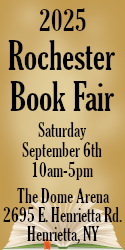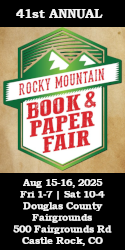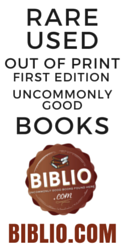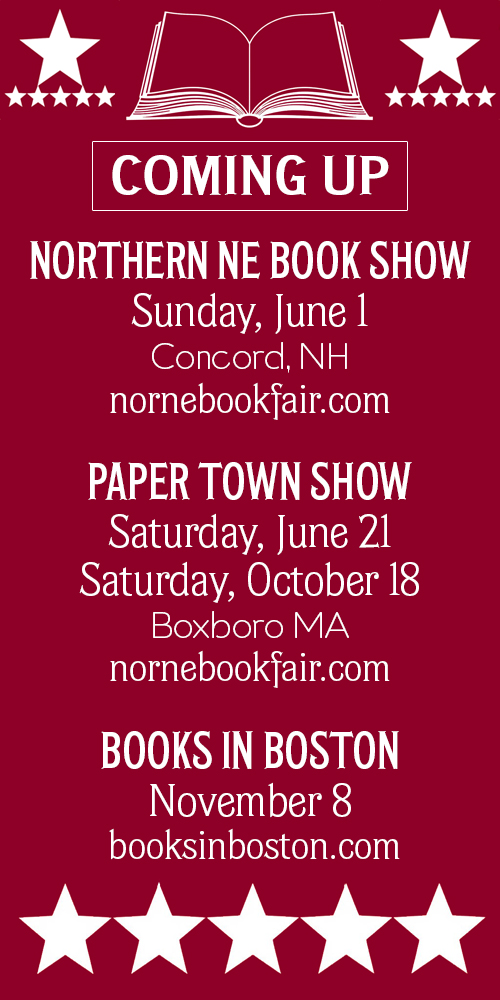Death of a Book Store
It was probably during the summer of 1998 that I made two important decisions. First, I would retire from the Foreign Service in July 1999 (when I turned fifty years old). Secondly, I would start my own book business. After all, I had held on to my quite considerable academic library (accumulated in the 1970s) and that would constitute the ‘seeds’ of my yet to be realized venture. The only critical question was… what next?
It was regarding this last point that I had some undeserved fortune: in a nearby town there was a book store that seemed to be doing well and I thought it prudent to befriend the owner. That was a easy task since he was an amiable fellow. I didn't conceal my entrepreneurial ambitions but since my area (the Middle East) was not in conflict with his own areas of specialization (modern political/military history), there was no barrier.
And learn I did over the next year. He did not exactly take me ‘under his wing’ but he was a cornucopia of information and ideas on how a successful book store should function. I visited him every weekend and he patiently led me through the mass of terminology that accompanied any business or craft. He recommended that I purchase and study John Carter’s book, ABC for Book Collectors in order to gain an understanding of the nomenclature surrounding the business of books. He also provided guidance on the value of reference works regarding travel narratives and explained the need to be painfully accurate when describing books for my pending first catalogue. In particular, he stressed that book description should employ modesty: better for the client to be more than pleased with his purchase than to feel deceived by an overly ‘ambitious’ ("this is an absolutely mint copy!”) narrative. In his opinion, no used book should or could be described as, at most, more than a ‘very good copy.’ I believed – and still believe – that he was right.
As a former Marine officer, moreover, he had definite standards, in particular relating to organization and quality. He had no time for paperback books for both aesthetic and economic reasons. He could see no point in filling a shelf with, say $3 paperbacks, instead of $25 cloth-bound books. He was also quite particular about condition: unless they were very scarce, he would not stock books with obvious signs of wear or abuse. A carefully drawn chart at the front of his shop told customers exactly where they could find what they were looking for.
His most important asset, however, was himself. He knew his books intimately and could discuss a remarkably broad range of subjects with considerable knowledge. Indeed, more than a few people came into the shop primarily to speak with him and learn more about history, politics and the military. He always welcomed these discussions and was careful not to promote any point of view too strongly. In this sense, he was hard to pin down: liberal or conservative? Democrat or Republican? It was a useful mystery.
And it worked. He once confided in me that his average annual sales exceeded $200,000 and that had been typical for the previous 5 years or so. While I never discovered what his exact net income was, I was more than confident that it was at least $100,000: not bad for a father/son enterprise, particularly when you love what you are doing.
After ten years, however, the father decided to ‘hang it up’ and retire, this time for good, and to move with his wife to South Carolina. He left his son with a successful business with a wide-ranging and impressive clientele, including, inter alia, Colin Powell and other Washington-area luminaries.
And as things began to go wrong it was at first hard to identify any particular reason. It was more like the beginning of an avalanche: a small trickle of errors that eventually resulted in a massive, unstoppable rush to financial ruin.
Perhaps the first error involved the people (and there were several) he hired to help him run the business. While the son was reasonably well-informed about the stock, his part-time assistants were not. They knew next to nothing about what books were on hand and weren't able to offer useful information to help potential customers find what they were looking for. If someone was looking for Hornblower books by C.S. Forester, they weren't able to also recommend Patrick O’Brian's (Richard Patrick Russ) novels related to Britain’s naval wars during the Napoleonic period. It wasn't enough to hire pleasant individuals (and, with one exception, they were): they were six volt bulbs in a 120 volt circuit.
Two problems, however, were increasingly obvious: the son began accumulating a great amount of stock…. lots… and lots of stock and most of it of doubtful value. Even though he did donate a great deal to various charities, the aisles became cluttered with boxes of nearly useless and unsaleable books. The “shipshape and Bristol fashion” attitude of the father gave way to a sense of dereliction, if not indifference. To reach the rear exit door, one had to literally maneuver around a dozen crates of pure rubbish. More and more paperbacks books began to fill the shelves. True, they were inexpensive and certainly they didn't even hint to the fact that the premises had once been a very upmarket book store.
What probably sealed the store’s fate, however, was the son’s decision to begin bringing in vintage guitar amplifiers… along with some guitars. Even though the son was an accomplished musician (and like many such talented individuals, earned very little for his efforts) this was not what his regular customers were looking for. They didn't want to wade through a half dozen amplifiers before getting to the book shelves.
Within three years, the store’s gross income fell from more than $200,000 to under $100,000. The following year, gross sales had dropped to under $50,000. By the fifth year, the son was unable to pay the monthly lease of $3000. One can certainly argue that the internet had taken a toll on business. On the other hand, most of his original clientele were well-heeled and prominent individuals who could afford to purchase good books and liked to have them on display. To make an analogy, it was like habitues of the fine dining scene gradually watching their favorite restaurant turn into a second-rate fast food operation. And they stayed away in droves.
Last year, he recognized that all was lost and sold his stock to a company that paid him pennies on the dollar for the books. The son now works in the U.S. Park Service library to which he had, with fine irony, donated books in the past.
I am not at all certain what, if any, conclusion may be derived from the above. After all, even highly competent and energetic individuals fall on their faces from time to time. Perhaps this should be the lesson: indifference is not a successful marketing plan. And don’t fix what ain’t broken…
Michael M. Pixley served for 22 years as a Foreign Service Officer in the U.S. Department of State, with 17 of those years overseas, primarily in Turkey and Iraq. He began his second career as a bookseller (Eastern Approaches Books, Annapolis MD) in 1999, specializing in the Middle East.


























